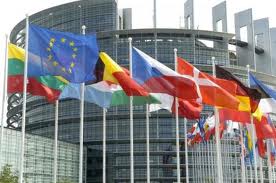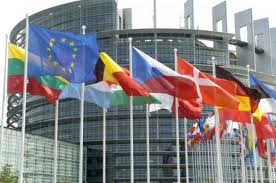Europe :The CAP is in danger unless it is socially legitimate!

Letter to all MEPs prior to the vote on the 4 reports of the CAP reform 2014-2020
Dear Sir or Madam, Members of the European Parliament,
At the March plenary, you will be voting on the 4 reports on the CAP reform 2014-2020.
European citizens, both taxpayers and consumers, are very attached to diversified European agriculture, present throughout the territory, and largely composed of small and medium-sized family farms. However the CAP reform proposed by the European Commission in October 2011 and amended by the Agriculture Committee of the European Parliament (Comagri) in January 2013, allows a very uneven use of CAP direct payments to farms to continue.
A CAP budget can only be maintained if it is socially legitimate. However, with agricultural prices subject to global markets and often below European production costs, most producers cannot survive without the CAP direct payments. It is therefore essential that direct payments be degressive and capped throughout the EU, and that they have lower thresholds than those proposed by the Commission and confirmed by Comagri. EU food security is the first objective of the CAP: direct payments should therefore be reserved for farmers who produce food. The higher payment for the first hectares, on condition that there is a significant capping of direct payments, and with a sufficient amount, is a step in the right direction. Member states should be allowed to set up better standards for environment. A real crop rotation is needed, with a significant percentage of leguminous plants.
The proposed CAP reform, which accentuates the deregulation of European agricultural markets, increases the volatility of agricultural prices: the income- insurance proposed will only benefit insurance companies and large farms. It should be excluded from the second pillar, because it has nothing to do with rural development and could mobilise an important part of the rural development fund. Supply management is a better tool for avoiding sectorial crises. It does not involve any cost to the EU in budgetary terms. The Comagri decision to extend sugar quotas and vine planting rights is therefore positive. Action is still urgently required for milk to prevent the next crisis and the disappearance of many dairy producers.
The decoupling of direct payments from production1 is a significant risk that agricultural production in some sectors and regions may be abandoned. It is necessary to recouple most direct payments to production, and add supply management and measures that prevent over-intensification.
Hereunder you will find practical guidance for the plenary vote on the most important points on the meaning of social legitimacy of the CAP. We kindly request you to vote to increase the chances for the survival of small and medium-sized family farms in Europe. They are the basis of European food security, employment, installation of young farmers and continued vitality of the European countryside.
(1) To cap direct payments per farm: (article 11) – To maintain the capping mandatory for the Member States.- For a capping of total direct payment, including the greening part.
– For a lower threshold at €100,000 instead of 300.000, with limitation of chargeable labor costs by 50% instead of 100%.
(2) Premium for the first hectares (amendment 61) -Yes to the Comagri amendment that establishes the premium, but a significant amount is needed.
(3) Premium for small farms (articles 47 to 51) – No to the Comagri amendment that makes the premium optional for Member States (amendment 87). -Yes to the increase in the ceiling for this premium de 1000 to 1500€ (although it remains too low) (amendment 89). -Yes to the increase from 15 to 25% of the maximum percentage of the direct payment amount national average (amendment 89). -Yes to the increase of the maximum farm area from 3 to 5 ha, although it remains too low (amendment 89).
(4) Coupling of direct payments to the production (articles 38-39) -Yes it is vital to increase the maximum of recoupling by Member State (of 5% to 15%).- The possibility of recoupling must extend to all productive sectors without discrimination.
(5) Greening (articles 29-33) – A real crop rotation is needed, including the cultivation of leguminous plants (which improve soil and reduce the use of nitrogen fertilizers) (amendment 78). – No certification or measure other that organic farming shall exempt from the obligation to apply the “greening”(no the amendment 62 – article 29-paragraphs 3 and 4).
Spokesperson ECVC : Geneviève Savigny + 33 625551687; Hanny Van Geel +31 613903434 Press Contact ECVC: Marzia Rezzin +32 473300156
1 Decoupling is an artifice of the WTO agreement of 1994, which allows rich countries to subsidize agriculture without limits (green box). Combined with low agricultural prices that are below production costs, direct payments allow the food industry to obtain supplies at low prices, and have the same dumping effects on exports with regard to third countries as that of export subsidies.

